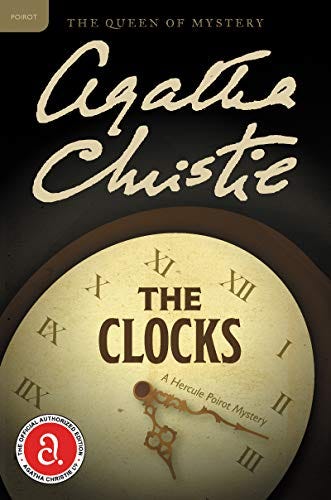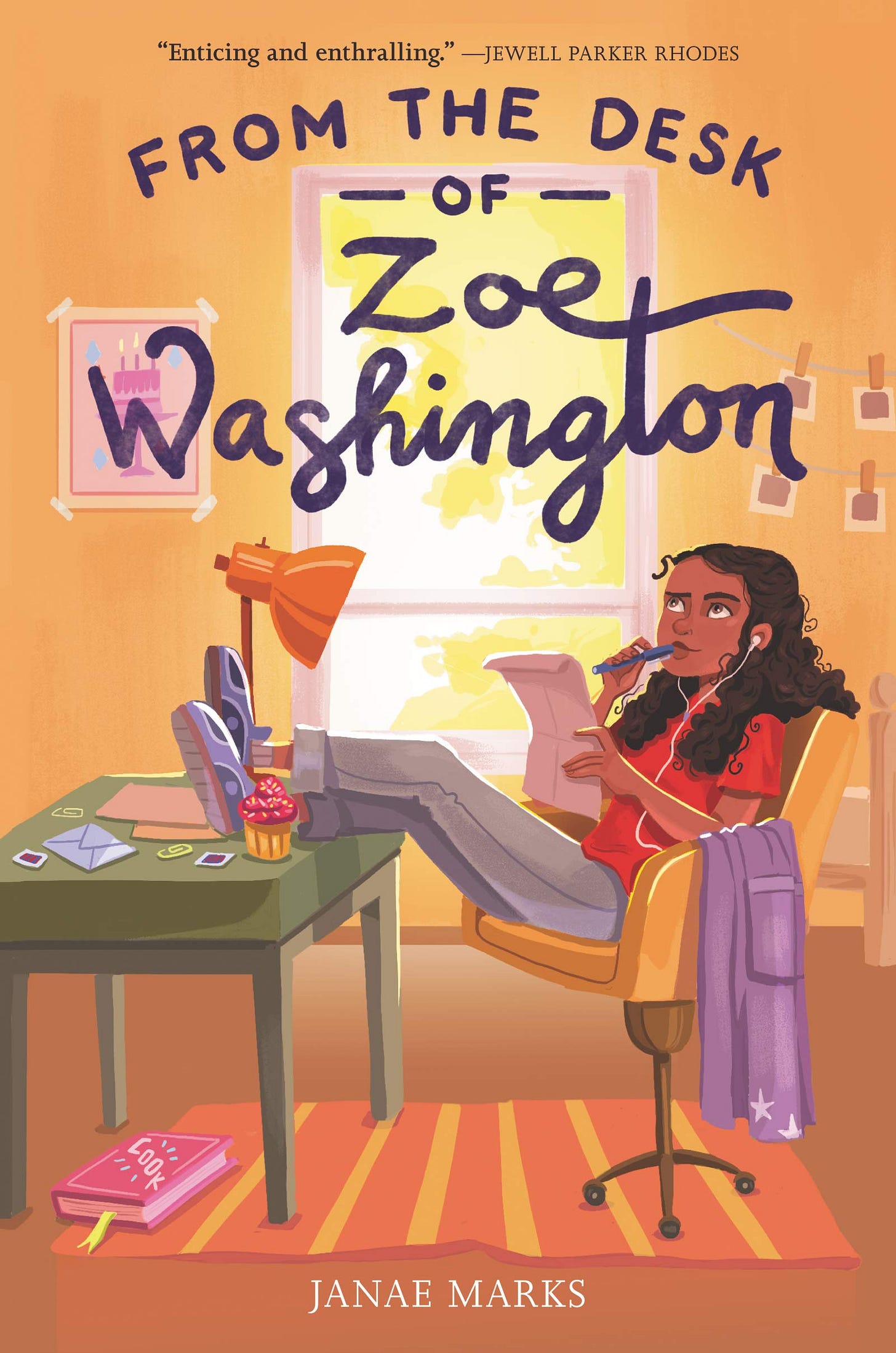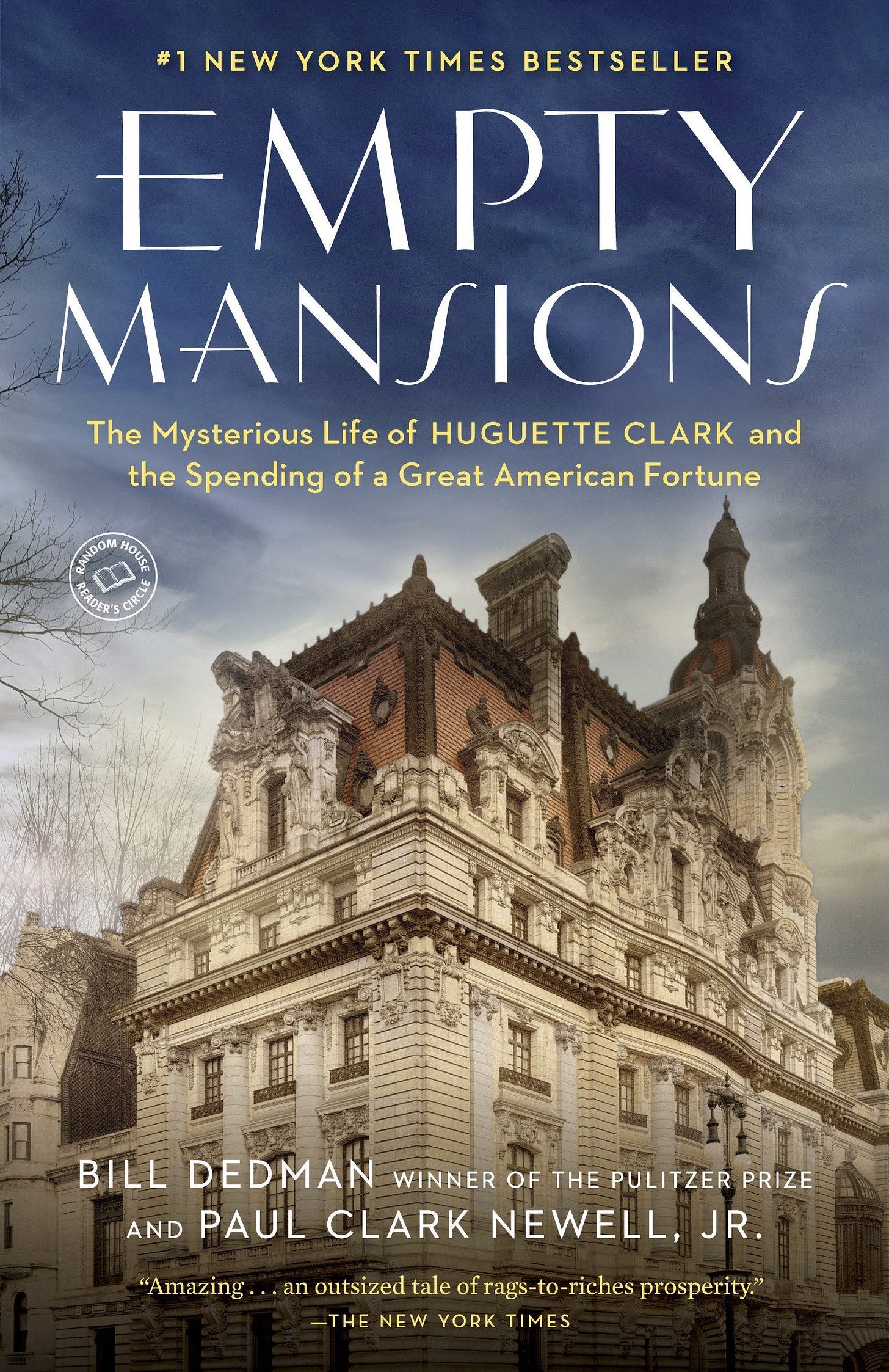You’re Not Sure About Permanent Daylight Saving Time
Know an aspiring pastry chef or are a fan of “The Gilded Age”
Hi friends,
I hope you had a great weekend. Some friends and I went to a new Italian restaurant on Saturday. It took us a month to get a reservation — the chicken parm was well worth the wait.
Next week, my friend Eman Quotah, author of Bride of the Sea, will be filling in for me. I’m off to Philly to visit a friend and attend Morris Animal Refuge’s Fur Ball, an annual fundraiser for the homeless pets of Philadelphia.
Eman has excellent taste in books — and I hear her two kids will be providing suggestions too — so I’m sure you’re in for a treat.
And, now, what to read if …
You’re Not Sure If You Want Permanent Daylight Saving Time
The Clocks by Agatha Christie
As previously established, I do not handle the whole “springing forward” thing well, so I was intrigued when I read the Senate passed a bill to eliminate the annual time change and make daylight saving time permanent. I was all excited, until I learned the U.S. tried this in the ‘70s and people hated it so much we reverted to this system. Now I’m not sure what to think.
If you’re looking for a book that puts time at the center of its story, look no further than Agatha Christie’s The Clocks. In it, typist Shelia Webb stumbles across the body of a middle-aged man, surrounded by six clocks, when she arrives at a private home for an appointment. The mystery grows even stranger when the house’s owner insists she did not request a typist’s service and does not own a clock collection. Enter beloved detective Hercule Poirot who assesses the scene and notes, “This crime is so complicated that it must be quite simple.”
The Clocks is an underappreciated gem from the Queen of Mystery. It was panned by reviewers when it was first published in 1963, but fans returning to it now have found a lot to love. I particularly enjoyed Poirot’s commentary on Sherlock Holmes and other fictional detective stories. Fans of the Golden Age of Mysteries should consider adding this one to their TBRs.
You Have a Budding Baker in Your Life
From the Desk of Zoe Washington by Janae Marks
I’ve been reading a lot of middle-grade novels lately. I love the feeling of starting and finishing a book in an hour or so and have found that many of them are written so they can be appreciated by both kids and adults (what I call the Pixar Test). From the Desk of Zoe Washington, a sweet story about baking, family and friends, passes the test with flying colors.
After celebrating her 12th birthday in the kitchen at a bakery, aspiring pastry chef Zoe Washington finds a letter from her dad in the mailbox. Zoe’s dad, Marcus, has been in prison for her entire life, and this is the first communication she’s ever received from him. She writes him back and slowly begins a relationship with the dad she never knew, all while navigating her internship at a bakery and convincing her mom and stepdad to allow her to try out for a reality TV baking competition. As if that wasn’t enough, she’s also not talking to her life-long best friend.
As I describe it, I realize there are a lot of threads in the plot, but they all tie together remarkably well. Marks has a gift for applying a serious tone to Zoe’s attempt to get to know her father, redevelop her friendship and become a baking star. Each is given the time and attention it deserves, with an acknowledgment that they all play a part in Zoe growing into the person she’s becoming. Families looking for a book to read together will find a lot to discuss with From the Desk of Zoe Washington.
If you hit the little heart at the top or bottom of this email each week, it makes it easier for people to find What To Read If.
You’re Bummed “The Gilded Age” is Over
Empty Mansions by Bill Dedman and Paul Clark Newell Jr.
The first season of HBO’s “The Gilded Age,” a lush period drama about two rival families in 1880s New York City, wraps tonight. If the show has you craving more gilded goodness, check out Empty Mansions, the real-life tale of Huguette Clark, a reclusive New York heiress who died at age 104 in 2011.
Dedman, a Pulitzer Prize winner, and Newell, one of Clark’s cousins, recount the wild rags-to-riches tale of Clark’s father, W.A. Clark. He mined copper, earned the nickname “the Copper King”, built railroads, and developed the city that would become Las Vegas. He built a 121-room mansion on New York’s Fifth Avenue, the largest home in the city, where Huguette grew up. While W.A. was a boisterous, larger-than-life figure, Huguette was quiet, devoting her time to collecting art and priceless artifacts. The book, published after her death, examines the Clark family legacy and Huguette’s relatives’ attempts to rewrite her will and gain her fortune.
Empty Mansions avoids many of the tropes familiar in this genre. As a review in The New York Times notes, it’s careful not to portray Huguette as either a “poor little rich girl” or as a Howard Hughes-style hermit. Instead, Dedman and Newell depict Huguette as an artist content with her own company and that of a few close friends, wary of those looking to take advantage of her.
Bonus recommendation: Joanna Shupe has a slew of delicious Gilded Age romances.
That’s it for me today. I’ll be back on Thursday with a Q&A featuring Emily Achler, founder of Italic Type, a GoodReads alternative.
What to Read If is a free weekly book recommendation newsletter. Need a rec? Want to gush about a book? Reply to this email, leave a comment or find me on Twitter @elizabethheld.
If you’re reading this on Substack or were forwarded this email, and you’d like to subscribe, click the button below.
Disclosure: I am an affiliate of Bookshop.org and I will earn a commission if you click through and make a purchase.







Empty Mansions is one of my favorite non-fiction reads to suggest! I found it so fascinating. Other Gilded Age recommendations in true crime: there are lots of books out there about Stanford White (who makes an appearance on the show), but I like American Eve: Evelyn Nesbit, Stanford White, the Birth of the "It" Girl and the Crime of the Century by Paula Uruburu. And I liked Harold Schechter's The Devil's Gentleman: Privilege, Poison, and the Trial That Ushered in the Twentieth Century about a series of cyanide killings in Manhattan.
I am SO not a fan of permanent daylight savings time BUT I would live with either “time” if it meant we could just not change twice a year. I love these book recs, thank you.